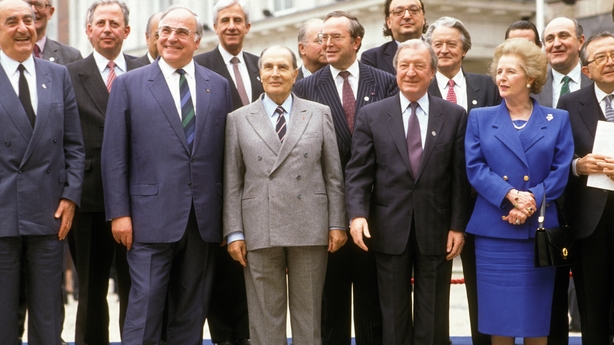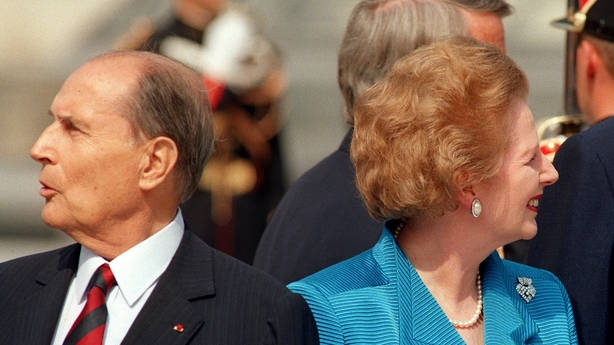By David McCullagh and Donal Byrne
Charles Haughey was determined to make a success of Ireland's presidency of the European Community in the first half of 1990.
He personally oversaw arrangements for the summit meetings in Dublin Castle, urging Dublin Corporation to do its part in "cleaning up and brightening the neighbourhood of the Castle", and insisting that telecommunications facilities for the media at the event must by "100% right".
He also ordered the appointment of veteran journalist John Healy to work on press relations for the Presidency, with the Department of the Taoiseach paying Healy's expenses, "which will no doubt be enormous".
The Irish Presidency came at "a volatile and uncertain time in European politics", according to a briefing by Foreign Affairs, with British "political turmoil... over European policy", pressure to maintain momentum towards political and monetary integration, and the unfolding situation in Eastern Europe, where Soviet power was crumbling.

Above all was the question of the unification of Germany, a prospect that caused considerable unease in other member states.
Thatcher told Haughey that after unification, Germany would be "so powerful that it will dominate everyone… They will be dealing with a powerful and dominant nation of 80 to 90 million people with a new confidence - a new euphoria... This new Germany will dominate the Community".
French President Francois Mitterrand said unification was "going faster than expected", and the Germans must guarantee that it would have no implications for other European borders, particularly those of Poland.
He told the Taoiseach: "If the Germans try to move to unification before sorting out these problems I would fear a great increase in international tension."

Dutch Prime Minister Ruud Lubbers worried about the cost of German unification for Europe. But armed with an assurance from Chancellor Helmut Kohl that unification would not impact on European funds – and, in particular, that countries like Ireland would not lose out – Haughey enthusiastically backed German unity.
Kohl was grateful, telling him ("with emphasis" according to the official Irish record of the meeting) that "you have always supported the idea of German unity. We will never forget that".
Kohl outlined his plans for complete monetary union with East Germany, which would lead to "an enormous wave of investment".
Gesturing out the window, Kohl told Haughey: "Unity is no longer a thing I can influence. Look out the window: the Rhine flows by there. You can't stop it. I can't stop it. It will reach the sea no matter what we do. That is the flow towards unity."
The taoiseach organised a special informal European Summit in Dublin in April that offered support for Germany unification, and even invited the Prime Minister of East Germany to lunch at a second Dublin Summit in June.
This had been Kohl’s idea and Haughey pursued it despite opposition from other European leaders.
Lubbers said he was not in favour of the idea at all. Mitterrand said the invitation was "problematic". Thatcher said "You can't!" when Haughey suggested inviting the East German.
But in the end, Haughey had his way and so did Kohl, presiding over the reunification of his country in October.
[Based on documents in 2020/3/246; 2020/3/409; 2020/3/417; 2020/3/421; and 2020/17/31]

